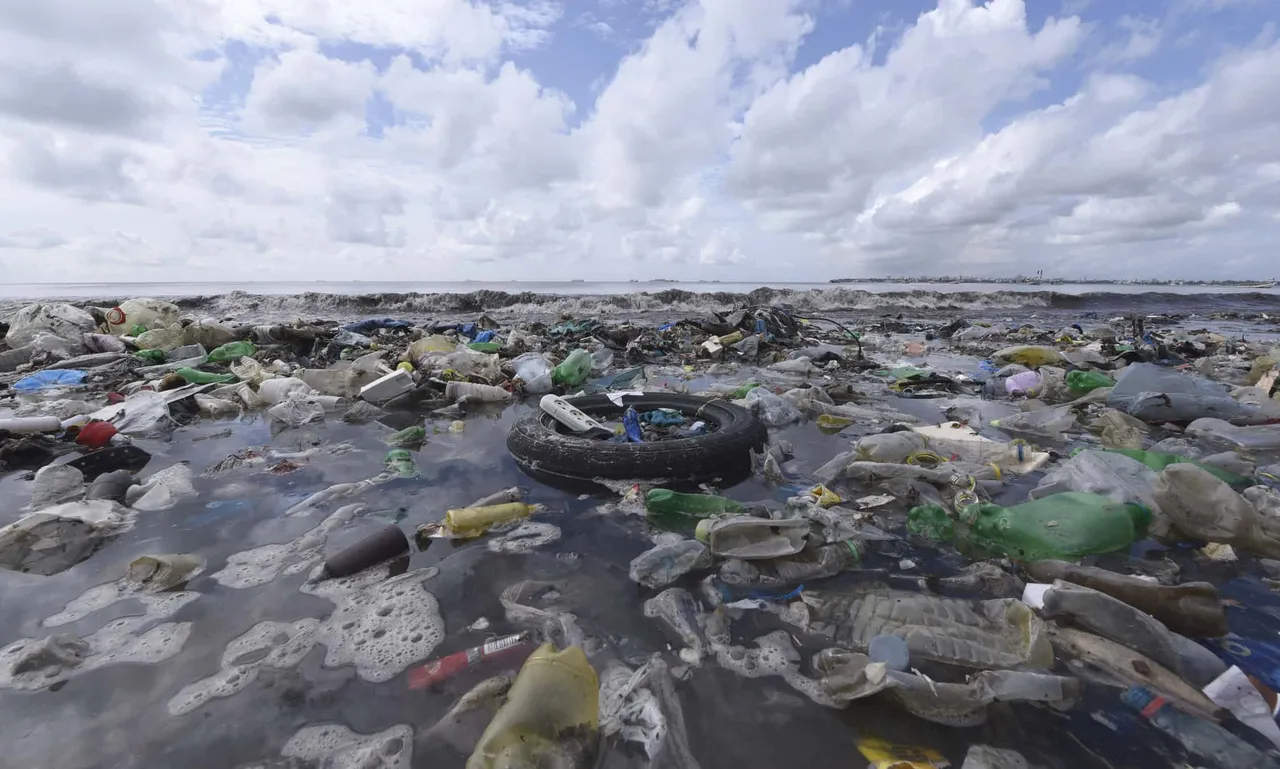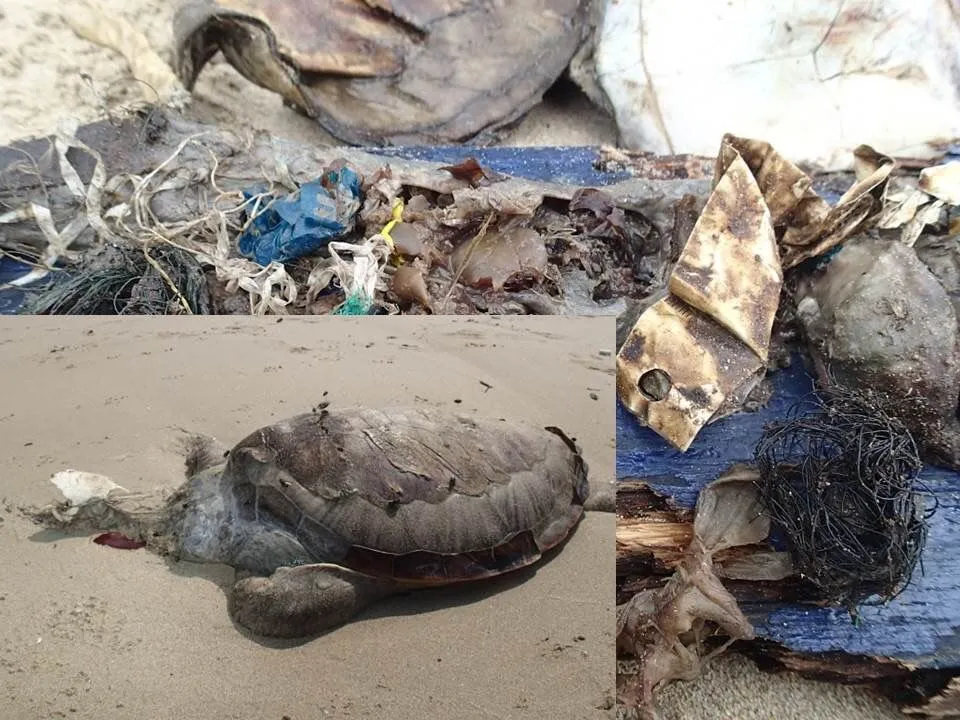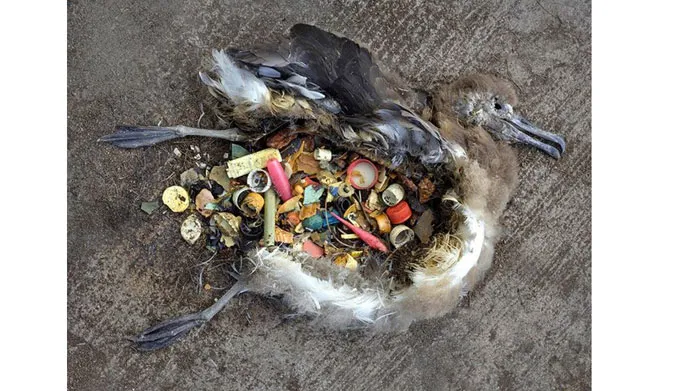
Dead whale found to have 30 PLASTIC BAGS in its stomach:
http://www.dailymail.co.uk/sciencetech/article-4185038/A-whale-30-PLASTIC-BAGS-stomach.html
Sperm Whales Found Dead In Germany, Stomachs FULL Of Plastic and Car Parts
Thirteen sperm whales stranded on the German coast had ingested huge amounts of plastic.
https://www.theguardian.com/commentisfree/2016/mar/30/plastic-debris-killing-sperm-whales
Plastic kills sperm whale in Davao
http://news.abs-cbn.com/news/12/20/16/plastic-kills-sperm-whale-in-davao
Beached whale in Spain dies from ingesting plastic waste
https://phys.org/news/2013-03-beached-whale-spain-dies-ingesting.html
Cuvier's beaked whale had 4kg of plastic bags in stomach
Whale Found In The Netherlands with plastic found in its stomach
It's not exactly new information that our oceans are full of garbage.
The National Academy of Sciences in 1975 estimated that around 14 billion pounds of garbage are added each year. However, times have changed dramatically since then and that number is most likely a lot higher now.

Earlier this year, a study was published in Marine Pollution Bulletin about the impact of plastic in whales' diets. Plastic cannot be digested and will sit in the stomach or intestines without being able to go anywhere. Eventually, the digestive tract becomes blocked. With the whale unable to clear this blockage, it is unable to eat real food and thus, the researchers found that starvation and gastric rupture ultimately kill the whales.
And It's Not Just Whales!
Turtles

A 2012 study showed that turtles are affected heavily by ocean garbage too. They indiscriminately eat buoyant plastics and other forms of ocean litter, including balloons and translucent materials that resemble jellyfish. Much of this gets lodged in the turtle’s throat, and stomach causing it to die from suffocation or starvation in a similar fashion to the whales.
Birds

Recently, the impact of plastic on albatross has been receiving a great deal of attention. There's an island, known as the Midway Atoll home to nearly three million birds, most of which are albatross. The birds on this island take to the sea to find food but over 12% of the time, however, they find plastic instead, due to its proximity to the Great Pacific garbage patch. Which is worthy of it's article, which I'll write in the future. The story is similar around the world. All birds are suffering from our massive pollution issue.
Fish

Scientists at Ghent University in Belgium recently calculated that shellfish lovers are eating up to 11,000 plastic fragments in their seafood each year. And since big fish eat the small fish it works it's way up the food chain. We absorb fewer than 1%, but they will still accumulate in the body over time.
Conclusion:
It's almost impossible to estimate exactly how many animals are affected by plastic in our oceans per year, but some groups say the number as high as 100,000. Some organizations are experimenting with large-scale devices to help clean the marine pollution but there isn't currently anything in place. Until this desperately-needed solution comes, it's on all of us to reduce the amount of litter we generate so it doesn't end up in the mouths or around the necks of ocean animals.
Sources:
Image 1: https://i.ytimg.com/vi/Fdmk7hkyTIo/maxresdefault(dot)jpg
Image 2: AFP/Getty Images
Image 3: https://hkmarinelife.files.wordpress.com/2015/10/img_9781(dot)jpg
Image 4: http://cdn2.theinertia.com/wp-content/uploads/2016/06/alb(dot)jpg
Image 5: https://hkmarinelife.files.wordpress.com/2015/10/img_9781(dot)jpg
http://www.sciencedirect.com/science/article/pii/S0025326X13000489
http://journals.plos.org/plosone/article?id=10.1371/journal.pone.0040884
http://www.iflscience.com/environment/ocean-animals-%E2%80%98death-plastic%E2%80%99-could-be-occurring-more-frequently/
https://www.theguardian.com/lifeandstyle/2017/feb/14/sea-to-plate-plastic-got-into-fish
If you think more people need to be aware of this issue whack that upvote button and help this post reach more people.
Follow @thedonfreeman for more.